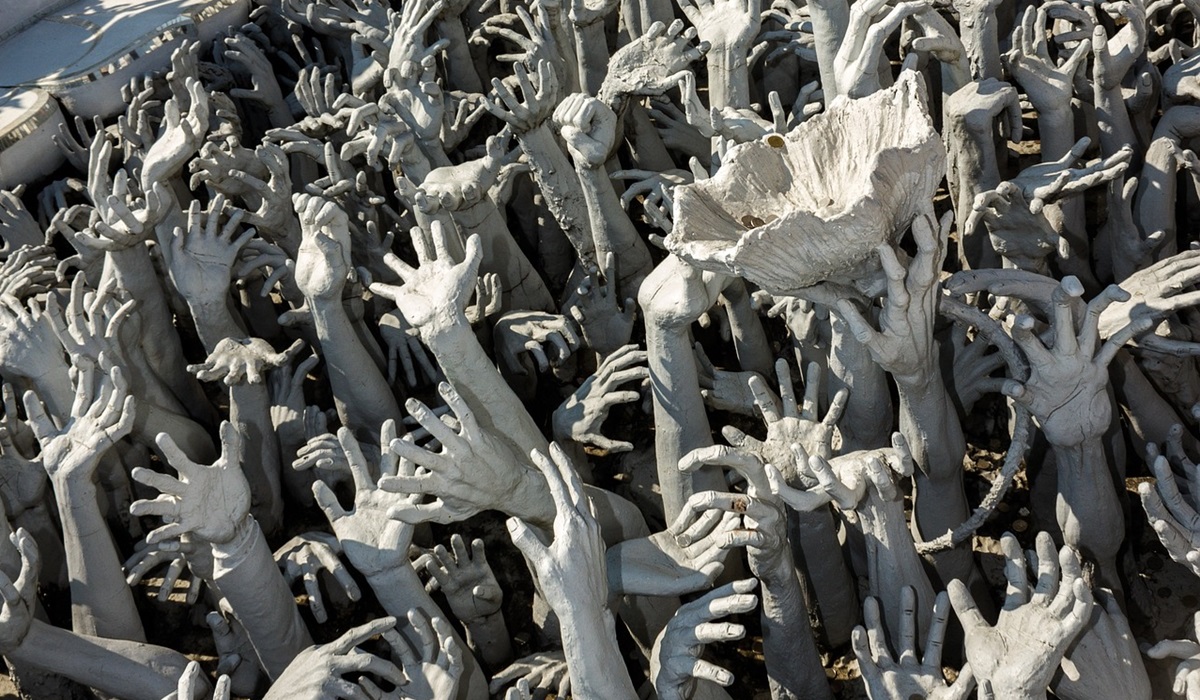The Dead Hand: Mutually Assured Destruction When Heads of State Orchestrate Collapse After Losing Power
- TDS News
- Breaking News
- September 22, 2024

Image Credit, Raichin
When the head of a nation loses the will of the people, what comes next? Is it a simple change in governance, or does it signal something far more destructive? The fall of those in power, especially those who have clung to it, often brings about more than just a transition—it can lead to chaos. In contemplating the persistence of influence after the loss of authority, the “dead hand” becomes a striking metaphor, especially when viewed through the lens of Russia’s Cold War-era nuclear system. Known as Perimeter, the Dead Hand was designed to ensure nuclear retaliation if the United States launched an attack, even if Russian command was obliterated. This chilling concept mirrors how some regimes ensure their destructive influence remains, even after their downfall.
The Russian Dead Hand system, built to guarantee retaliation, embodies the principle of mutually assured destruction (MAD). Its very existence ensured that devastation would occur without human intervention if a strike wiped out the Kremlin. In the same way, some power-hungry individuals set mechanisms in motion that make the collapse of their successors inevitable. It is a way to guarantee that even after their removal, the ruin they leave behind is unavoidable.
This idea of a “dead hand” stretches beyond military doctrine and into the political realm, where those who have lost their grip on power continue to influence the future. Such figures may no longer hold formal authority, but they leave behind traps designed to cripple those who follow. Economic devastation, social unrest, and the erosion of public trust are often the residue of a regime that refuses to relinquish control fully. They’ve had their time, and rather than allowing renewal, they pave the way for dysfunction, leaving the new administration with little hope of success.
When a government collapses or its authority is ousted, the fallout is not always immediate. Sometimes, it is the actions taken in the final moments of power—cutting deals, hollowing out institutions, or creating false narratives—that linger, ensuring the nation remains in turmoil. The dead hand is not just a system of nuclear deterrence; it becomes a metaphor for the way fallen regimes guarantee that the chaos continues long after they are gone. Their actions, deliberate or otherwise, leave the incoming government with almost insurmountable odds, creating conditions where failure is nearly guaranteed.
The world today faces an unprecedented number of humanitarian crises. From climate change to political instability, global challenges require steady, responsible governance. But what happens when the very people tasked with guiding a nation betray the trust placed in them? What happens when those in power refuse to exit gracefully, instead setting up their successors for disaster?
Too often, individuals with unchecked power choose to cling to it until the very last moment, ensuring that when they fall, they bring the entire system down with them. They might no longer be in office, but their influence, much like the Dead Hand, still threatens national stability. They sow distrust, divide the population, and leave behind a fractured society incapable of healing quickly.
As citizens, we must elect wisely. Governance should never be about personal gain or securing one’s legacy through manipulation. It should be about serving the people and building a sustainable future. When absolute power corrupts, it is the nation that suffers, often left in disarray, grappling with the legacies of those who came before.
The metaphor of the Dead Hand serves as a sobering reminder: even in the absence of direct control, systems can be set up to ensure destruction. This holds true in both military and political arenas. A head of state who is no longer trusted can either step aside with dignity, allowing for a peaceful transition, or they can cling to influence, guaranteeing that their successor’s task will be almost impossible.
It’s easy to look back at history and see where the wrong choices were made. But hindsight isn’t enough. We must take responsibility now for the future by choosing those who have the foresight to lead without sowing the seeds of destruction. Power should never outlast its welcome, and when it does, the consequences are felt for generations.
In a world teetering on the brink, with so many lives at stake, we must ensure that we are led by those who prioritize stability over chaos. The legacy of bad governance can be devastating, and the traps laid by former regimes can haunt nations long after their architects are gone.
The time to act is before the traps are set, before those who wield power ensure that the path forward is fraught with destruction.








